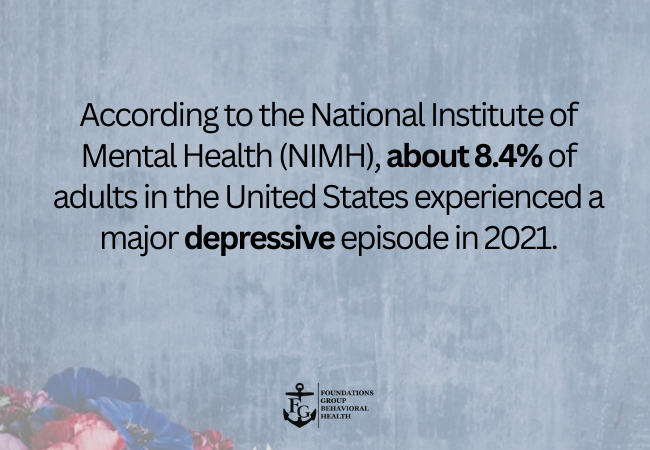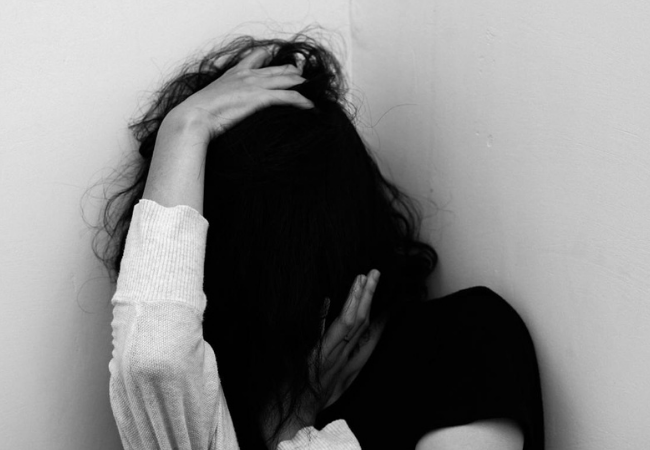Major Depressive Disorder (MDD) is one of the most common and serious mental health conditions, affecting millions of people worldwide. It is more than just feeling sad; it’s a debilitating condition that impacts one’s thoughts, feelings, and ability to function. Those living with MDD often struggle with fatigue, feelings of hopelessness, loss of interest in daily activities, and difficulty concentrating. While medication and therapy are essential components of treatment, effective coping strategies can significantly improve quality of life and help individuals manage their symptoms more effectively.
At Foundations Group Behavioral Health, we understand the challenges of living with depression and offer a variety of Behavioral Health Treatment Programs to help individuals regain control of their mental health. Our Psychiatric Day Treatment and Half Day Treatment Programs provide intensive, structured support tailored to each individual’s unique needs. Additionally, our Outpatient Mental Health Program offers flexibility for those who prefer to balance treatment with their daily responsibilities.
Understanding Major Depressive Disorder (MDD)
Major Depressive Disorder (MDD) is a common but serious mood disorder that affects how a person feels, thinks, and handles daily activities. People with MDD experience persistent feelings of sadness, hopelessness, and a lack of interest in activities they once enjoyed. Unlike temporary feelings of sadness, MDD can last for weeks, months, or even years without intervention.
Symptoms of MDD can vary, but common signs include:
- Persistent sadness or a “down” mood
- Loss of interest in hobbies or activities
- Changes in appetite or weight (either weight loss or gain)
- Insomnia or excessive sleeping
- Fatigue and lack of energy
- Difficulty concentrating or making decisions
- Thoughts of death or suicide
It’s important to recognize that depression is not just a “bad mood.” It’s a medical condition that requires appropriate treatment, and coping strategies are crucial in helping individuals manage their symptoms and improve their overall quality of life. With the right support and coping techniques, individuals with MDD can regain control over their lives and work toward recovery.
If you’re struggling with depression, it’s essential to develop coping strategies alongside professional treatment. Here are 9 effective coping strategies that can help you manage symptoms and improve your mental well-being.
1. Establish a Routine for Structure and Stability
When depression takes hold, it can be difficult to find the energy or motivation to complete even basic tasks. Establishing a daily routine can provide a sense of stability and purpose, helping to counter the feelings of emptiness and disarray that often accompany depression. Having a routine doesn’t have to be overwhelming. Start with small steps like setting regular times for waking up, eating, and going to bed. This consistency can help create a sense of accomplishment and structure, providing an anchor for your day.
Tip: Even something as simple as making your bed every morning or planning meals can help build a sense of routine and control.
2. Engage in Regular Physical Activity
Exercise is one of the most effective natural mood enhancers. Physical activity stimulates the release of endorphins, chemicals in the brain that help to improve mood and reduce pain. Research consistently shows that regular exercise can reduce symptoms of depression, improve energy levels, and promote better sleep. Whether it’s a brisk walk around the block, a yoga session, or a more intense workout, incorporating movement into your day can make a significant difference in your mental health.
Tip: Start small with activities like stretching or taking short walks, then gradually increase the intensity as you feel more capable.
3. Practice Mindfulness and Relaxation Techniques
Mindfulness practices, such as meditation, deep breathing, and progressive muscle relaxation, can help reduce stress, calm the mind, and break the cycle of negative thinking that often accompanies depression. Mindfulness encourages being present in the moment, which can be particularly helpful for individuals who are overwhelmed by constant negative thoughts or rumination.
Incorporating these practices into your daily routine may help you regain a sense of calm and centeredness, promoting emotional stability. Many Behavioral Health Treatment Programs, including those at Foundations Group Behavioral Health, incorporate mindfulness techniques as part of the therapeutic process to manage depression and anxiety.
Tip: Try setting aside 10 minutes a day for mindful breathing or guided meditation.
4. Connect with Supportive Family and Friends
Depression can cause feelings of isolation and loneliness. One of the most important things you can do when dealing with depression is to reach out to others for support. Connecting with friends, family, or support groups can provide comfort, reduce feelings of isolation, and help you feel understood. It’s also essential to share your feelings with someone you trust, whether it’s a family member, close friend, or therapist.
At Foundations Group Behavioral Health, we encourage building strong support systems, as they can play a crucial role in recovery. Emotional support, compassion, and encouragement from loved ones can help lift your mood and provide much-needed perspective during difficult times.
Tip: Reach out to a friend for a casual conversation or spend time with family in a low-pressure setting. Simply being around loved ones can help combat feelings of isolation.
5. Set Realistic Goals and Break Tasks into Smaller Steps
Depression often brings a sense of helplessness, and tasks that used to feel manageable may suddenly seem insurmountable. One effective way to overcome this feeling is by breaking larger tasks into smaller, more manageable steps. Set realistic, attainable goals for yourself and celebrate small victories along the way.
Tip: Instead of focusing on an entire to-do list, pick one task per day and break it down. For example, if you’re struggling with cleaning, start by focusing on one room or even a small section of a room.
6. Focus on Nutrition for Better Mental Health
Proper nutrition plays a crucial role in mental health. Foods rich in vitamins, minerals, and omega-3 fatty acids can support brain function and reduce the symptoms of depression. Maintaining a balanced diet can help regulate mood and energy levels, and even prevent the fatigue and sluggishness that can accompany depression. While eating healthy won’t cure depression, it can certainly help in managing it.
Tip: Try incorporating more whole grains, lean proteins, and fresh vegetables into your diet. Avoid alcohol and sugar, which can exacerbate depression symptoms.
7. Limit Alcohol and Substance Use
It might be tempting to turn to alcohol or other substances as a means of numbing emotional pain, but substance use can worsen depression in the long run. Alcohol is a depressant that can interfere with sleep patterns and exacerbate feelings of sadness or hopelessness. If you find yourself using substances to cope, it’s essential to seek help through a Depressive Disorder Treatment Program or a Dual Diagnosis Treatment Program for co-occurring conditions like substance abuse.
Tip: If you’re struggling with substance use, talk to a counselor or therapist who specializes in addiction treatment to help address both issues simultaneously.
8. Challenge Negative Thought Patterns
Cognitive Behavioral Therapy (CBT) is a therapeutic approach that helps individuals identify and challenge negative thought patterns, replacing them with more positive and constructive beliefs. This technique is highly effective in treating depression, as it helps individuals break free from the cycle of self-criticism and hopelessness.
You can begin practicing this on your own by recognizing negative self-talk and actively working to change your perspective. Writing down negative thoughts and countering them with positive, realistic alternatives can be a powerful tool.
Tip: Keep a journal where you note your negative thoughts and then write down positive affirmations or counterarguments to them.
9. Seek Professional Help When Needed
While coping strategies can help, professional treatment is often necessary to effectively manage Major Depressive Disorder. A Psychiatric Day Treatment Program or Half Day Treatment Program offers intensive support, helping you work through the emotional, cognitive, and behavioral aspects of depression in a structured environment. Outpatient Mental Health Programs allow for more flexible treatment while still providing access to expert care. At Foundations Group Behavioral Health, we tailor our Depressive Disorder Treatment Program to each individual’s needs, ensuring that you receive the most appropriate level of care for your situation.
Tip: If you’re finding it difficult to cope on your own, don’t hesitate to reach out for help. Therapy, medication, or a combination of both can be highly effective in managing depression.

Why Coping Strategies Are Crucial for Depression Management
Coping strategies play a vital role in managing Major Depressive Disorder (MDD). They help individuals handle the emotional and mental strain that comes with depression. These strategies do not eliminate the disorder, but they provide valuable tools to manage symptoms and prevent them from overwhelming daily life.
Effective coping strategies can:
- Reduce the intensity of depressive symptoms
- Improve emotional regulation and resilience
- Help individuals maintain or improve their functioning in daily activities
- Prevent the escalation of depression and reduce the risk of relapse
Coping strategies can include practical techniques such as mindfulness, cognitive reframing, and relaxation exercises. They may also involve lifestyle changes like improving sleep hygiene, establishing healthy routines, and building a support network. When combined with professional treatment, these strategies contribute to long-term recovery and improved well-being.
How to Integrate Coping Strategies into Your Daily Routine
Integrating coping strategies into daily life can be challenging for someone struggling with depression, but small, consistent efforts can make a big difference. Here are some steps to help make coping strategies part of your routine:
- Start Small: Begin by incorporating one or two simple strategies that feel manageable. For example, practice deep breathing for five minutes in the morning or write down one positive thing that happened during the day.
- Create a Routine: Establishing a consistent daily routine can provide structure, which helps combat the unpredictability and fatigue that often come with depression. Include healthy habits such as regular meals, exercise, and sleep schedules.
- Set Realistic Goals: Depression can make tasks feel overwhelming. Break down larger tasks into smaller, more achievable goals. Celebrate small victories to build momentum and motivation.
- Practice Mindfulness: Mindfulness meditation or mindful breathing techniques can help individuals stay grounded in the present moment and reduce feelings of stress or anxiety.
- Reach Out for Support: Incorporate social support into your routine. This might mean attending therapy sessions, calling a friend, or joining a support group. Having someone to talk to can significantly reduce feelings of isolation.
- Track Your Progress: Keeping a journal can help track your mood, coping techniques that worked, and areas that need more focus. This can help refine your approach and make it easier to stick with strategies over time.
Signs That You Might Need More Intensive Treatment
While coping strategies are a valuable tool in managing depression, there may be times when they are not enough. If you or a loved one is experiencing the following, it may be a sign that more intensive treatment is needed:
- Worsening Symptoms: If symptoms of depression become more severe, such as increased feelings of hopelessness, suicidal thoughts, or an inability to function, it’s important to seek immediate help.
- Inability to Cope with Daily Life: If depression is interfering significantly with your ability to work, take care of daily responsibilities, or maintain relationships, professional intervention may be necessary.
- Failure to Improve with Self-Care: If your attempts to manage depression with lifestyle changes and coping strategies have not led to noticeable improvements, it’s a sign that additional professional treatment might be needed.
Intensive treatment options can include Psychiatric Day Treatment, where individuals receive structured treatment while still having time at home, or more comprehensive programs such as Outpatient Mental Health Programs or Half Day Treatment Programs. These treatments provide more consistent support and guidance as individuals work through their depression.
The Importance of Professional Support and Treatment Options
While self-help techniques and coping strategies are essential, professional support is often necessary for managing Major Depressive Disorder effectively. Professional treatment offers the expertise and structured care that can guide individuals through their recovery journey.
Common treatment options for depression include:
- Psychotherapy: Cognitive Behavioral Therapy (CBT) and other types of psychotherapy are effective in treating MDD by helping individuals identify and change negative thinking patterns and behaviors.
- Medication: Antidepressants may be prescribed to help regulate mood and brain chemistry. For some individuals, medication can be a crucial part of managing depression.
- Psychiatric Day Treatment Programs: These programs provide a structured environment with therapy and support, allowing individuals to manage their symptoms while still being able to return home each day.
- Outpatient Mental Health Programs: These programs offer therapy and counseling without the need for hospitalization, providing flexibility and support for individuals who are committed to managing their depression.
- Half Day Treatment Programs: A shorter alternative to full-day treatment, these programs are designed for individuals who need regular therapy and support but have the flexibility to return to their home or work responsibilities in the afternoons.
At Foundations Group Behavioral Health, our Depressive Disorder Treatment Program is tailored to address the unique needs of each individual, combining therapy, medication management, and community support. For those struggling with depression, seeking professional treatment at a Behavioral Health Treatment Center can offer the support and tools necessary for long-term recovery and a healthier future.
Take the First Step Towards Recovery
Major Depressive Disorder doesn’t have to control your life. By implementing coping strategies and seeking professional help, it’s possible to manage depression and find hope again. At Foundations Group Behavioral Health, we provide compassionate, individualized care for those dealing with depression. Whether you’re looking for Psychiatric Day Treatment, Half Day Programs, or an Outpatient Mental Health Program, we’re here to support you every step of the way. Contact us today at 508.388.5324 to book your first session and begin your journey toward a more mindful future.
FAQ on Major Depressive Disorder (MDD)
What is Major Depressive Disorder (MDD)?
Major Depressive Disorder (MDD) is a mental health condition characterized by persistent feelings of sadness, hopelessness, and a lack of interest or pleasure in previously enjoyed activities. MDD can impact daily functioning, including work, social interactions, and overall well-being.
What are the common signs of Major Depressive Disorder?
Common signs of MDD include persistent sadness, loss of interest in hobbies, changes in appetite or sleep patterns, difficulty concentrating, fatigue, and thoughts of death or suicide. It’s essential to seek professional help if these symptoms last for more than two weeks.
How can coping strategies help with depression?
Coping strategies help individuals manage their symptoms, regulate their emotions, and maintain functioning during depressive episodes. They complement other treatments like therapy and medication and can significantly improve quality of life.
When should I seek professional help for depression?
If you experience worsening symptoms, an inability to cope with daily life, or if self-care strategies are not helping, it may be time to seek professional support. This can include therapies, medication, or intensive outpatient programs.
What treatment options are available for Major Depressive Disorder?
Treatment for MDD can include psychotherapy (such as Cognitive Behavioral Therapy), medication (antidepressants), and structured programs like Psychiatric Day Treatment, Half Day Treatment Programs, or Outpatient Mental Health Programs.
What is the difference between outpatient and day treatment programs for depression?
Outpatient treatment programs provide therapy and counseling without requiring overnight stays, while day treatment programs offer more structured care, usually during the day, and allow individuals to return home afterward. Both options provide intensive support for managing depression.








